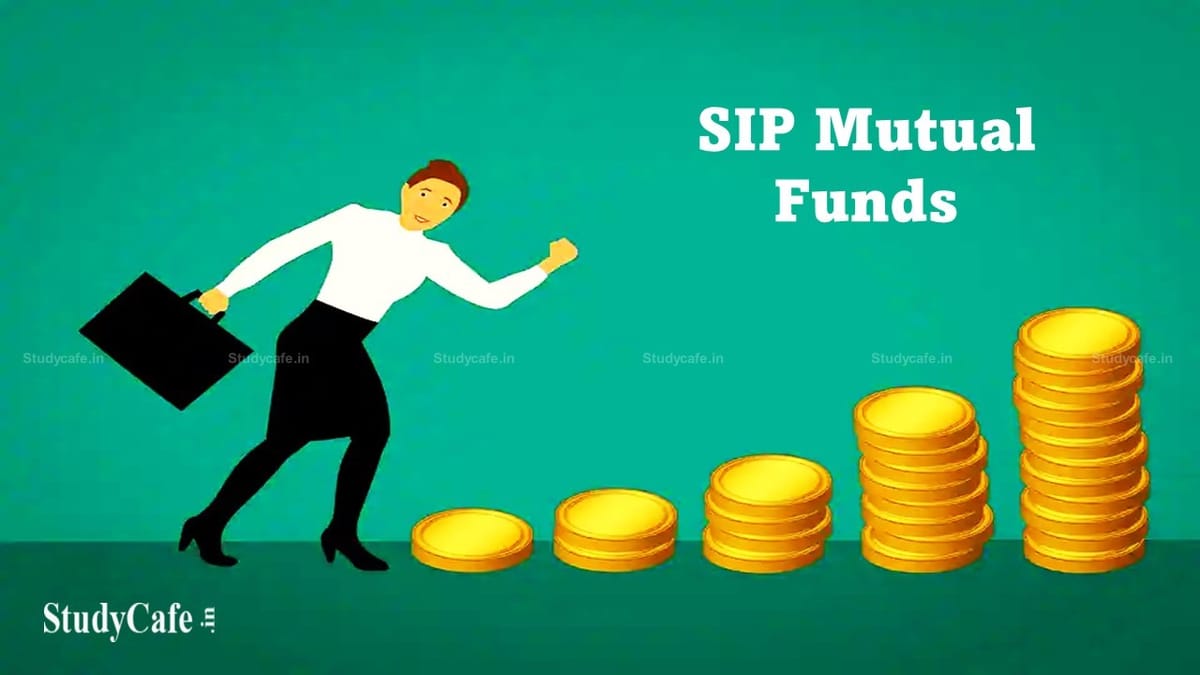Invest Rs10 Lakh and make profit of Rs32 Lakhs via Mutual Fund SIP
Shivani Bhati | May 13, 2022 |

Invest Rs10 Lakh and make profit of Rs32 Lakhs via Mutual Fund SIP
Investing in mutual funds to achieve long-term objectives has become a popular investment choice among regular investors. It’s no surprise that SIP accounts have reached an all-time high of 5.39 crore in April 2022. While there are several mutual fund plans available across asset classes, there is one more variant.
All mutual fund schemes, including equity and debt, have two options: Direct and Regular. The expense ratio in a Direct Plan is low because there is no intermediary to assist you in completing the purchase, whereas in a Regular Plan, the investor invests through an intermediary such as a distributor, broker, or banker who is paid a distribution fee by the fund house, resulting in a higher expense ratio compared to a Direct Plan.
To put it in monetary terms, consider how much you would save if you did everything yourself or followed the advice that keep going about.
Assume you invest Rs 10 lakh in an equity mutual fund and make a monthly SIP of Rs 10,000. If we assume a 12 percent annualized growth rate in your portfolio, you would save roughly Rs 3.04 lakhs in commission/fees in ten years, Rs 7.17 lakhs in fifteen years, and Rs 14.86 lakhs in twenty years if we assume a 1% commission or adviser fee each year.
In this simplified scenario, you would have made Rs 32.6 lakhs, Rs 76.8 lakhs, and Rs 1.59 crores over this time period. Thus, the fees paid out to the advisor amounts to about 9.33% of your profits.
Also, based on historical trends, the Sensex would have traded below 10% of its high more than half of the time in those 10-20 years, below 20% of the time in 30% of the time, and below 30% of the time in 17% of the time. Also, once every 7-10 years, the markets would have seen a temporary collapse of 30 percent to 60 percent, with 1 or 2 strong declines of more than 30 percent per 10 years.
What would a typical retail investor do if she were alone during such “scary” times? It’s tough to keep a profit of Rs 76.8 lakhs when it drops to Rs 30-40 lakhs, or when the primary investment drops from Rs 10 lakhs to Rs 5-6 lakhs, it is difficult to remain sane and invested for most investors.
What if you exit with the intention of returning ‘when the time is right,’ but market volatility — stocks soaring up for a few days and then drifting down – makes it impossible to know when to enter?
According to historical statistics, if you miss just 5 of the finest days in the previous 17 years of investment, your CAGR (Compounded Annual Growth Rate) drops by 3% to 11.5 percent from 14.4 percent. Missing 10 best days dropped it another 2% to 9.6 percent, missing 30 greatest days in 17 years down it to 3.3 percent, and, hold your breath, missing 50 best days in 17 years dropped it to only 3.3 percent meant your returns would be down to a Negative 1.1%. (Source: Funds India)
And remember, many of these best days could happen in the middle of a market crash too!
The investor must understand that the markets will eventually align to fundamentals, and that short-term swings in specific stocks or markets do not change this basic truth. Asset allocation is always king, and it should be the unbreakable foundation for all investment. Financial investment decisions should be based on rational data analysis and emotions that must be managed when investing. While it is necessary to analyze and rebalance a portfolio on a regular basis, doing nothing may sometimes be a good approach.
Another crucial point to remember is that passive investments such as Index Funds or ETFs are still 100% equities products that will experience the same market volatility as the markets itself, with no opportunity to outperform their benchmark.
If you can handle all of the complexities of maintaining a portfolio as well as your emotions, you may be a DIY investor. However, if you are going to rely on others’ support (aka suggestions) to make investments, reconsider. Remember that if you’re on the wrong train, it doesn’t matter how fast you’re travelling!!
If you opt to invest in Mutual Funds on your own, be cautious and examine the site you utilise, as there are numerous online platforms that provide Regular MF plans. So, while you’re paid the same commission as a financial counsellor, you’re missing out on the benefit of customised advice.
In case of any Doubt regarding Membership you can mail us at [email protected]
Join Studycafe's WhatsApp Group or Telegram Channel for Latest Updates on Government Job, Sarkari Naukri, Private Jobs, Income Tax, GST, Companies Act, Judgements and CA, CS, ICWA, and MUCH MORE!"